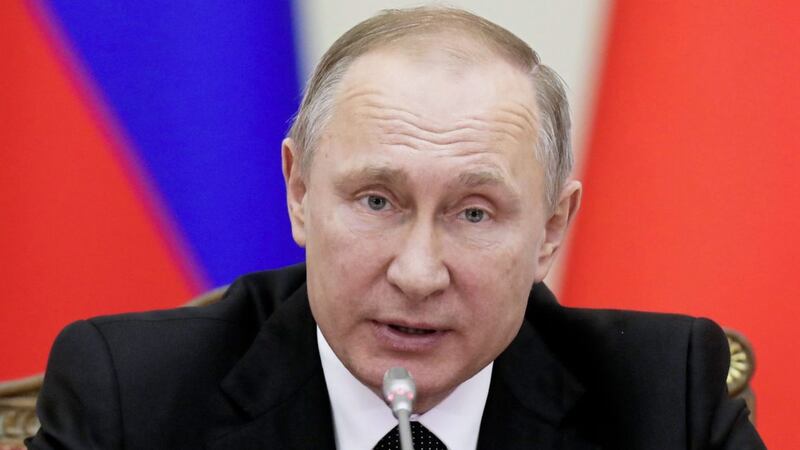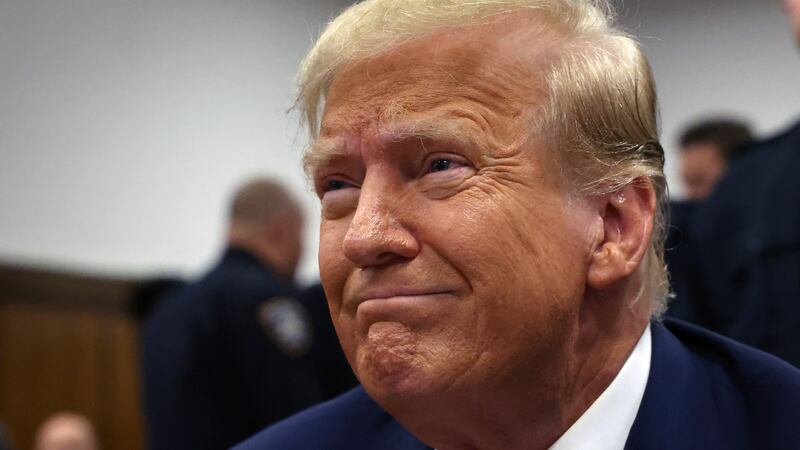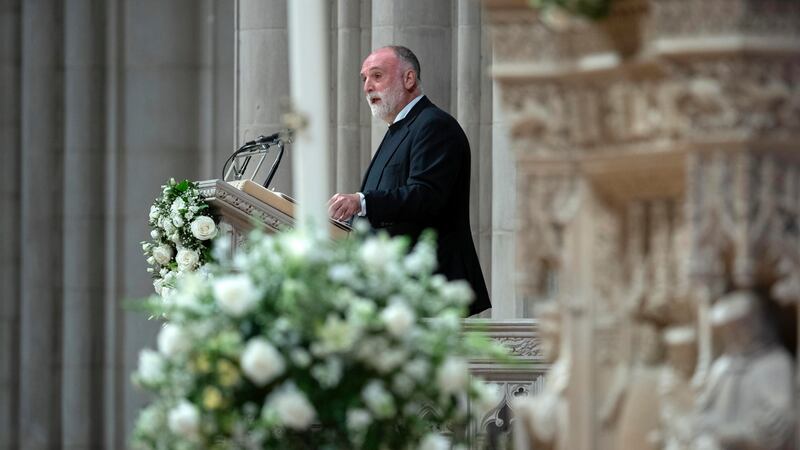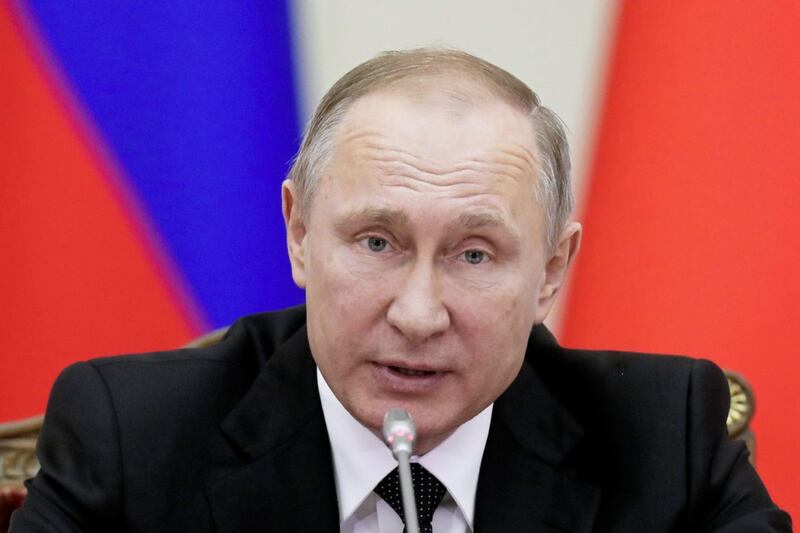RUSSIAN president Vladimir Putin has ruled out expelling US diplomats in the wake of fresh US sanctions and the ordered expulsion of 35 Russians in retaliation for alleged cyber-meddling in the American election.
The diplomatic showdown between Washington and Moscow, which had been festering even before the November 8 presidential election saw Donald Trump elevated to the presidency, puts pressure on the billionaire businessman not to let Russia off the hook after he takes office on January 20.
Russia's government had threatened retaliation, and it continues to deny US accusations that it hacked and stole emails to try to help Mr Trump defeat his Democratic rival Hillary Clinton.
The US president-elect has said America should move on - but in a sign he is no longer totally brushing off allegations, he plans to meet US intelligence leaders next week to learn more.
Mr Putin's statement came hours after foreign minister Sergey Lavrov suggested a tit-for-tat expulsion of 35 diplomats and the closure of two sites in and around Moscow.
US president Barack Obama ordered sanctions against the GRU and FSB, leading Russian intelligence agencies the US said were involved in the hacking.
In an elaborately coordinated response by at least five federal agencies, the Obama administration also sought to expose Russia's cyber tactics with a detailed technical report and hinted it might launch a covert counter-attack.
Mr Obama said: "All Americans should be alarmed by Russia's actions.
"Such activities have consequences."
He said the response was not yet over and the US could take further, covert action.
The sanctions could easily be rescinded by Mr Trump, who has insisted that Mr Obama and the Democrats are merely attempting to tarnish the legitimacy of his election.
President Obama expels 35 diplomats in Cold War deja vu. As everybody, incl people, will be glad to see the last of this hapless Adm. pic.twitter.com/mleqA16H8D
— Russian Embassy, UK (@RussianEmbassy) December 29, 2016
Russian prime minister Dmitry Medvedev accused Washington of becoming immersed in "anti-Russian death throes".
Mr Medvedev, who focused on improving US-Russia ties when he was president from 2008-2012, called the latest diplomatic breach "sad" in a Twitter post.
As part of the punishment levelled against Moscow, the US kicked out 35 Russian diplomats, in response to Russia's harassment of US diplomats. They also shut down Russian recreational compounds in New York and Maryland which US officials said were being used for intelligence purposes.
It is the strongest action the Obama administration has taken to date in retaliation over hacking, and more comprehensive than last year's sanctions on North Korea after it hacked Sony Pictures Entertainment.
The new penalties add to existing US sanctions over Russia's actions in Ukraine, which have impaired Russia's economy but had limited impact on Mr Putin's behaviour.
Russia called the penalties a clumsy, aggressive attempt to "harm Russian-American ties".
Mr Putin's spokesman Dmitry Peskov said Russia would take into account the fact that Donald Trump will soon replace Mr Obama as it drafts retaliatory measures.
US relations with Russia have suffered during Mr Obama's years in office as he and Mr Putin tussled over Ukraine, Edward Snowden and Russia's support for Syrian president Bashar Assad.
Maria Zakharova, a Russian foreign ministry spokeswoman, took to Facebook to call the Obama administration "a group of foreign policy losers, angry and ignorant".
It is unlikely the new sanctions, while symbolically significant, will have a major impact on Russian spy operations. The sanctions freeze any US assets and block Americans from doing business with them. But Russian law bars the spy agencies from having assets in the US, and any activities they undertake would likely be covert and hard to identify.
Senior Obama administration officials said that even with the penalties, the US had reason to believe Russia would keep hacking other nations' elections and might well try to hack American elections again in 2018 or 2020. The officials briefed reporters on a conference call on condition of anonymity.
Though the FBI and Department of Homeland Security issued a joint report on "Russian malicious cyber activity" - replete with examples of malware code used by the Russians - it still has not released a broader report Mr Obama has promised detailing Russia's efforts to interfere with US elections.
The report has been eagerly anticipated by those hoping to make it politically untenable for Mr Trump to continue questioning whether Russia was really involved. But US officials said those seeking more detail about who the US has determined did the hacking need look only to the list of sanctions targets, which includes the GRU head, his three deputies, and two Russian nationals wanted by the FBI for cyber crimes.
In a statement on the Kremlin's web site, Mr Putin referred to the sanctions as a "provocation aimed to further undermine Russian-American relations".
But he also said that Moscow would not be ousting American diplomats.
Mr Putin said: "The Russian diplomats returning home will spend the New Year Holidays with their relatives and dear ones. At home.
"We will not create problems for US diplomats. We will not expel anybody."




